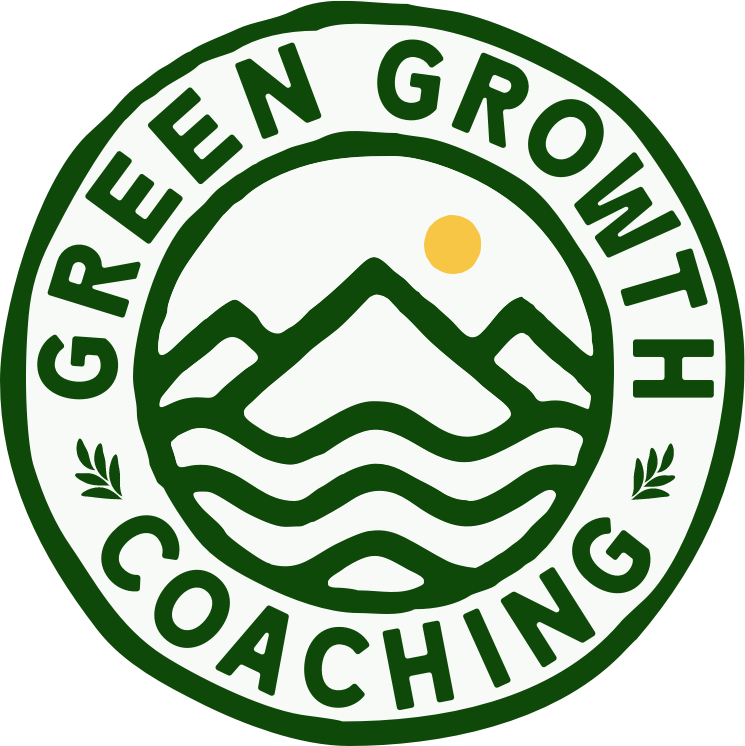How climate coaching changed my life (and career)
I started out as an ecologist, studying the boreal forest ecosystem with one of the most prominent arctic biologist today. It was the dream job that I’d worked for most of my undergrad. I was extremely motivated but after 2 months in the arctic and four more months in the program, I decided to quit. And I didn’t find myself back in climate work for the next 10 years.
In this post, I will discuss is my journey of becoming a climate action coach last year. In particular, I will look at how my motivation has changed in the last 10 years regarding climate actions, and how that has influenced my career development.
Motivation is about the why behind what we do. Knowing your why is important. Sinek (2009) explains that our behaviours and decision-making is biologically wired to respond more to the why (belief) than the what (facts and figures). Knowing your why allows you to be successful at what you do (i.e. career, leadership, business) because “people don’t buy what you do; they buy why you do it” (Sinek, 2009). Motivation is also distinguished in two types - intrinsic and extrinsic. Self-determination theory (Deci & Ryan, 2008) suggests that both types are equally powerful in shaping our personality, behaviour and optimal functioning. In my case, I have strong intrinsic motivation behind climate action coaching. First, I simply love nature. Second, I have a desire to help restore human’s relationships to the planet so that we will collectively have a sustainable future. Third, I love empowering climate-conscious individuals to fulfill their sustainability goals, which could happen in their careers, organizations, businesses, communities or personal lives. Finally, coaching, training and advising are my natural strengths and I get incredible joy from doing this work. My extrinsic motivation for this work is low in comparison. From an entrepreneurship perspective, climate activism adds a competitive advantage by enhancing my brand image and value proposition in my niche.
However, I was not always so motivated about climate actions. In fact, I was so defeated and disillusioned about it, I quit my job as an arctic ecologist and completely switched fields, to photography and education, for nine years before I found my way back to it again. Using McClusky’s Theory of Margin (1963) to reflect my journey reveals interesting insight into the motivation levels I experienced. In this theory, load is the demand of learners, power is resources to cope with load, and margin is the relationship between the power and load. A high margin means more energy, strength, joy and power for both their work and nonwork lives (Merriam & Bierema, 2014).
While the full story of my journey would be too long to recount, one significant load I experienced as an Arctic ecologist was the demanding and harsh field work. I literally did not have enough physical “power” to handle the work. Another load was an emotional one - seeing the effect of climate change in person really depressed me. I did not have the right support or mental resilience to overcome that. There were many other demands that I did not have the power to handle. Overall, my margin for that job was extremely low. I quit despite my desire to contribute to climate change.
Fast forward to 2019, I had become a professor and a career coach at a university, teaching international communication. One morning I woke up to an article titled “Should climate change be my new career calling?” It was about getting into a climate-related career without having a science background. Reading this connected everything I had done up to that point – ecology, education, career and academic advising, design, problem-solving. Elated, I began my climate coaching journey that day and I have been working on it ever since. I also reclaimed my climate activism power back. I slowly realized that ecology was not the right path for my activism. The impact of making the shift was dramatic and significant. Through coaching, I have never felt more empowered towards my activism work, whereas ecology left me in the state of inaction for almost 10 years.
What I learned from this is that when evaluating career goals, how you choose to approach or realize the goal could be more important than the goal itself. When the approach produces a negative outcome, people might consider switching paths, thinking that their goal was not right. This could be problematic because switching paths could be time-consuming, difficult and expensive. People can risk deviating away from something that is already a good fit. I also learned that when achieving goals, successful learning may not mean a successful outcome. If you learn and implement the wrong thing, it may work but it may not be sustainable; just like how I burned out after the Arctic experience. However, if you learn the right thing, which matches and maximizes your strengths, you might just be unstoppable.
Pin to share.

